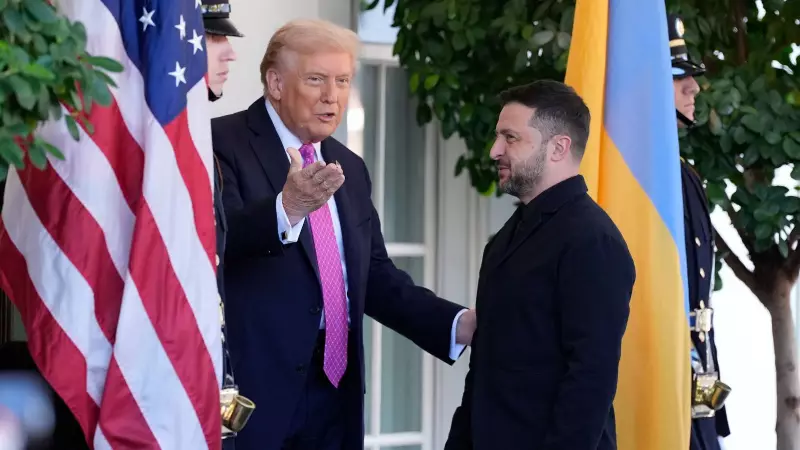
In a stunning revelation that could reshape understanding of pre-war diplomacy, former US President Donald Trump allegedly advised Ukrainian leader Volodymyr Zelenskyy to make significant concessions to Russia during their infamous 2019 phone call. This explosive claim comes from former White House official Fiona Hill's forthcoming book, providing new context to the events that led to Trump's first impeachment.
The Bombshell Conversation
According to Hill's account, Trump didn't just pressure Zelenskyy to investigate Joe Biden's family during their July 2019 call. The former president reportedly went much further, suggesting Ukraine should essentially surrender to Russian demands by accepting the loss of Crimea and making other territorial compromises.
"Just make a deal," Trump allegedly told Zelenskyy, displaying what experts now see as a fundamental misunderstanding of the geopolitical realities facing Ukraine.
Fiona Hill's Insider Perspective
As Trump's former top Russia adviser, Hill had unprecedented access to the administration's foreign policy decisions. Her book, "There Is Nothing For You Here: Finding Opportunity in the Twenty-First Century," paints a disturbing picture of Trump's approach to international diplomacy.
Hill reveals that Trump saw the Ukraine-Russia conflict as a "bothersome complication" rather than a crucial matter of international security and sovereignty. This perspective, she argues, fundamentally undermined US foreign policy and potentially emboldened Russian aggression.
The Geopolitical Fallout
The timing of these revelations is particularly significant given subsequent events:
- Trump's advice came years before Russia's full-scale invasion in February 2022
- Ukraine had been fighting Russian-backed separatists since 2014
- The conversation occurred while US military aid to Ukraine was frozen
- Trump's impeachment followed revelations about the call
Experts suggest that Trump's willingness to advise concessions may have signaled to Moscow that Western support for Ukraine was negotiable.
Broader Implications for US Foreign Policy
Hill's account raises serious questions about how different US approaches to Ukraine might have influenced Putin's decision to launch a full-scale invasion. The book suggests that Trump's transactional view of international relations prioritized personal political gains over strategic national interests.
As the war in Ukraine continues, these revelations provide crucial context for understanding the complex diplomatic landscape that preceded the current conflict. They also offer insight into how a potential second Trump administration might approach ongoing international crises.





